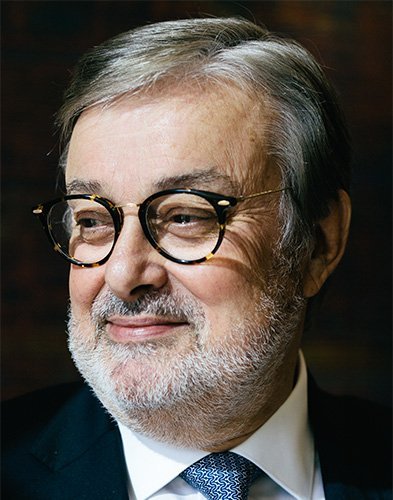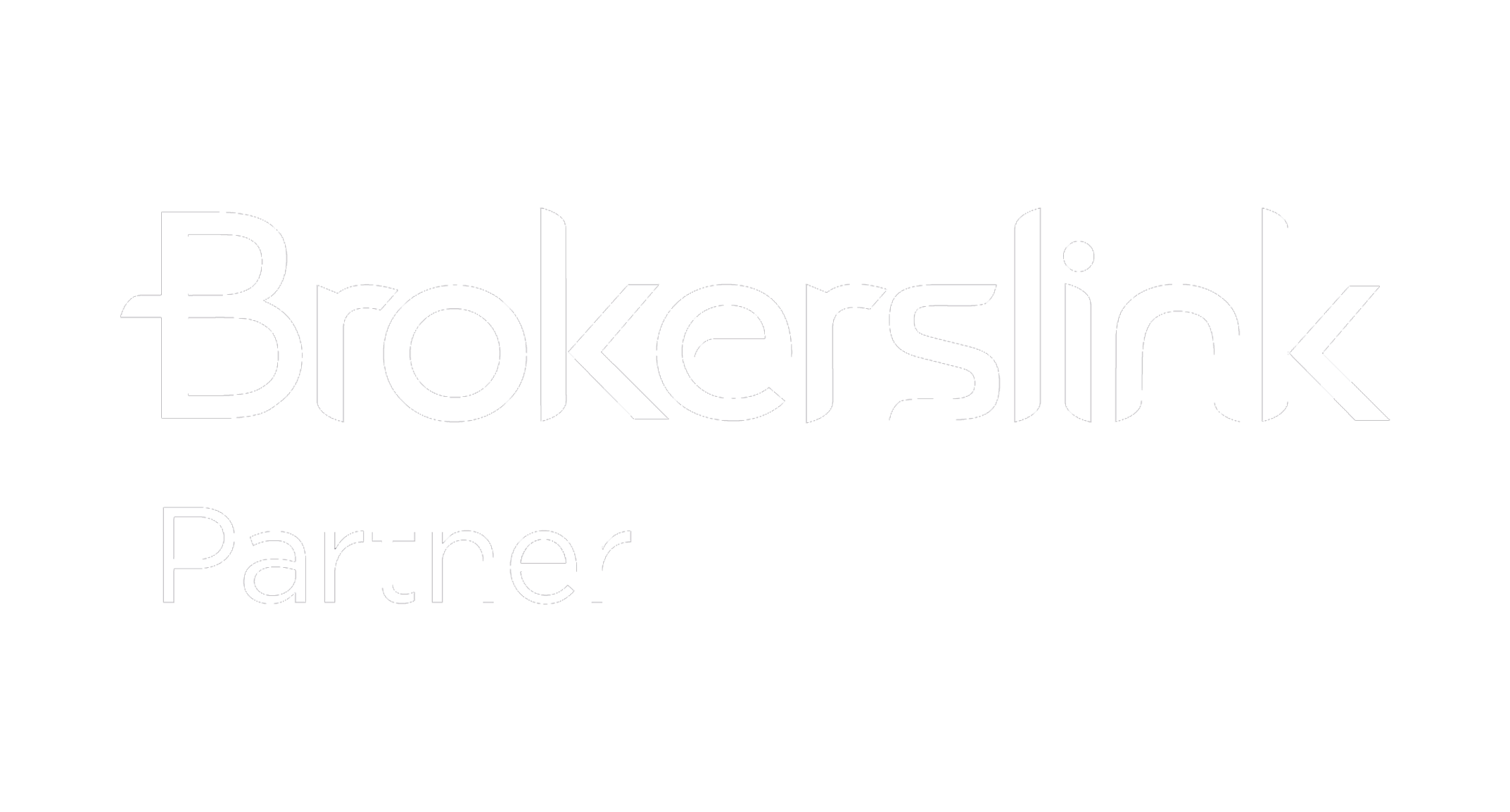You studied Law and taught at Law School for nine years. What prompted you to move into the insurance sector?
It wasn’t a direct transition. Before joining the insurance sector, I worked in several different areas, often all at the same time. These included my university teaching, practising law and working as a government auditor and in the field of capital market oversight. These experiences provided me with an understanding of the financial system, from diferente perspectives, so I suppose you could say I was predisposed to insurance.
In 1995 you joined Mundial-Confiança. How did that happen?
It happened by chance. But the truth is, chance has a habit of getting it right. The Champalimaud Group, led by the insurer, Mundial-Confiança, was looking to enhance its position in the banking system and needed multiskilled staff with knowledge of capital markets. I was going through a period ofprofessional uncertainty at the time, so when I was approached by a mutual friend I immediately related to the project and especially to the people on the team.
Since 1998 you have held Board positions at several Group companies. How would you describe the Group’s evolution over the past two decades?
In short, there were two major periods. For the first ten years, we sought to take advantage of every growth opportunity available, which resulted in the unification of three market-leading brands: Mundial-Confiança, Império-Bonança and Fidelidade. The team had the foresight to understand that scale is a determining factor in the insurance business, as it leads to better risk management and more diversification.
The second period, the last decade, can be summed up by the word progress, in the broadest sense of the term. That is, it was a period of sustained and consistent growth. The priority was to get Fidelidade ready to face the challenges of a new economy in terms of products and services, technology, people, and processes. Modesty aside, I believe we have been successful.
What were your main achievements?
For the last five years our profit has exceeded € 1.2bn, our non-life proceeds have risen by about 40%, with over €400 million in additional premium, which is almost the equivalent of some insurers that have been operating in Portugal for many years. Our shareholders’ equity rose 65% and operational profitability has gone up every year. Assets under management increased by over 20% and our international presence has expanded, leading to a quadrupling of its relative weight. The group branched out into the hospital business through the Luz Saúde Group. We have also rejuvenated our employees by bringing in 850 new hires, without affecting the overall number of employees.
Perhaps most importantly, Fidelidade has consistently been recognised for having the best reputation, being the most innovative, and having the best products and customer satisfaction reports and, we now know that the number of complaints made to the ASF (Insurance and Pension Fund Supervisory Authority) is well below the market average.
Could you share your recipe for success?
I can tell you what the main ingredientes are. First of all, a generous dose of responsibility, acting prudently, as a natural market regulator which, more often than not, means rowing against the tide. Then add service quality to make the difference. Thirdly, add innovation, and thinking more globally and openly, beyond the limits of insurance and time-honoured industry practice. Fourthly, fold in the human touch: spare a word or a smile, or shake people’s hands when they need it most.
Finally, have a multi-skilled team and serve the dish hot. Have them rally around the same values and ensure each member knows exactly what is expected of them at every moment.
Among your trophies there is one few other people can claim. You led a company that started out public and later went private. Notably, before it was acquired by a private group, Fidelidade already stood out for innovation and de facto, rather than just de jure, leadership, demonstrating that public ownership need not be a constraint.
We have always operated in a highly competitive private marketplace under competition laws and we have always been able to attract and retain the best professionals. This was largely possible because the state-owned Portuguese bank CGD, despite the limitations imposed upon it, was highly sensitive to the needs and specific characteristics of the insurance business. I must add that going private was a natural and frictionless process for us. And maybe that is explained by genetics. It was like going back to your roots. The insurers that were incorporated into Fidelidade, that is, Fidelidade itself, Império-Bonança and Mundial-Confiança, had been private for most of their history. If we add up all the years these companies were held by private shareholders, you get a combined total of 500 years. That is five times longer than their existence in the public sector.
You have taken on leadership roles for more than 20 years. What would you say makes a good leader?
I really don’t know how to answer that. My general perspective on leadership has evolved a great deal over the years and has involved some pleasant surprises and some disappointments.
We all know there are different takes on the qualities required for good leadership. And we all also know successful leaders that do not fit those patterns. But the opposite is also true. Not all situations require the same leadership style, but I think a sense of humour is important. It helps you see situations in relative terms and not take yourself too seriously. Finally, I would say that ethics can be the line between a leader and a "good” leader.
Fidelidade is undergoing a transition in leadership. How is the process going?
Yes, three years ago we embarked on a leadership transition programme.
In 2017, Rogério Campos Henriques became Vice-President of the Executive Committee before being made CEO, and that committee has also been strengthened and renewed. As part of that process, I stepped down as executive leader but remain Chairman of the Board. I have also retained some specific duties. Our aim is to ensure continuity for our strategic agenda. In our business, where we work with external distribution networks, unlike in banking, the main value our partners see in us is stability — and to that end there must be predictability and trust that we will maintain stable policies over time. By demonstrating that principle of stability through our management team, we are able to ensure loyalty from our network and our partners through these difficult times.
What is the greatest challenge you have faced at Fidelidade?
In terms of business, the decision with probably the most impact on the Fidelidade we have today was the one we made in 2005 — not to join the "pricing war” that had taken root, and accept that the decision would necessarily lead to a considerable loss in market share.
We did not take the easy way out with pricing, focusing instead on delivering a quality service and creating an exclusive distribution network that would value that approach. It was a risky decision, because losses would be certain and immediate, whereas the benefits were uncertain and would be further down the line. And, as predicted, we saw the competition grow whilst we did not. I remember how some people smiled patronisingly when they saw the near 10-point market share loss we knowingly subjected ourselves to in Workers’ Compensation, but what they didn’t realise was that we were only "loaning out” some of our market share and sooner or later it would return to us. Which is exactly what happened.
In 2005 we witnessed the greatest merger of all time in the Portuguese insurance sector — between Fidelidade Mundial and Império Bonança, companies which had themselves been formed from earlier mergers. How do you explain the successful outcome of such an operation?
I believe the main factor was good operational integration driven by the back office, complemented by an inclusive brand strategy from our distribution partners. We had two very strong brands and our goal was to merge the distribution networks aligned with each brand and anchor them onto a single operational platform with better service, which created the operational basis for the launch of the Fidelidade brand.
You are known as a very caring manager who puts people first and recognises their dedication to the company. Throughout the process we just discussed, people remained a constant focus for you. Would you like to explain what it has been like to deal with people in the course of your career?
I try to be an accessible, decent person, that is all. Because I believe that virtue, although it may be difficult to describe, is important. Decency is the aesthetics of ethics. In truth I have never had much of a taste, or patience, for the more formal aspects of work and your typical agenda requirements. But I try to make up for it with a genuine gregarious feeling of the "Fidelidade family”. Which is not difficult because, at this company, we believe that insurers can differentiate themselves based on their people and not just technology. All companies will inevitably end up using the same technology.
Fidelidade has been a part of the Fosun universe of companies since 2014. What was it like transitioning to that group?
It was a very good transition. Although the transaction was massive in scale and complexity, there were no incidents, unforeseen events, or nasty surprises.
Fidelidade is a company that traditionallyhas a high level of reserves and technical provisions, and the seller, CGD, livedup to its impeccable reputation. At management level, it was possible to create trust in a short period of time, and a relationship based on availability, willingness to take on challenges, sincerity, and transparency.
When you establish a relationship with another culture, whatever it may be, there are three possible courses of action.
One is confrontation, thinking you are right all the time, which tends to create insurmountable barriers. Or you can complain systematically, which creates bubbles that isolate you. Or you can adapt and benefit from the different perspectives.
I believe that, in general, Portuguese people, and Portuguese managers, have a competitive advantage in this. They know how to observe, learn and accept others’ behaviour and adapt their own.
What is it like to co-exist with CGD and Fosun?
The ownership structure following privatisation gave us the opportunity to continue to take advantage of CGD’s commercial capabilities and reputation in the Portuguese market, and, at the same time, broaden our horizons, benefiting from Fosun’s vision and experience. I remember that, in October 2014, only six months after privatisation, Fidelidade management had the support of the shareholders to undertake a strategic investment of Euros 460 million, namely the acquisition of the Luz Saúde hospital group. It was a major sign of trust from Fosun and something that would have been almost impossible previously.
Fidelidade prizes social responsibility, having developed numerous related initiatives over the years. Would you like to point out a few?
We see social responsibility as something more than a fad. It is a structural lever for improvement and a platform for intergenerational dialogue within the company. Fidelidade’s purpose is to be a high-tech and high-touch company, technologically apt but truly compassionate and an example of corporate citizenship.
That is where our social responsibility programme comes in, operating under the brand Fidelidade Comunidade (www. fidelidadecomunidade.pt).
The programme has an internal axis that serves our employees and an external focus on inclusion of people with disabilities, the ageing population, prevention in health and culture. Our aim is to have an approach that is consistent with our business and avoid random and disjointed initiatives.
The most significant initiative is the Fidelidade Comunidade prize, which not only supports but also partners with non-profit organisations that operate in the first three areas I mentioned above.
Digital transformation has changed our society and economy over the past few decades. The Fidelidade Group has played an active role, supporting tech start-ups. How do you see these impacting on the insurance sector?
For me, there are two kinds of digital transition. The positive kind and the not so positive kind. The positive kind is anything that brings efficiency, lower costs and better customer service. The not so positive kind includes digital business models that increase competition whilst sacrificing customer service and that may never become profitable.
Fortunately, Fidelidade always has something to fall back on. Our non-life distribution operation is based on na extensive network of agents and brokers, who are our first line of defence and are highly committed to customers. We are very proud of the value our partners and our physical offices have provided during the pandemic.
In 2015, you were appointed Global Partner at Fosun, becoming one of a select number of company leaders that the Group invested in worldwide and who work as an advisory group on growth strategy. What does this appointment mean to you?
It means two things. It means that Fosun has recognised the importance of both Fidelidade and Portugal to it. On a personal level, it is an opportunity to get more insight into a different reality and take part in the development of a global group.
As part of a group of Chinese origin, you have a strong connection with China, which you have often visited. Personally, what most impresses you about present-day China?
Maybe the constant search for innovation in every space, or the genuine appreciation for Portugal, based on the historical experience of Macau, and their project delivery capability.
You recently stated that "Fidelidade is na ambitious company, but not a greedy one.” Would you like to elaborate on that?
I said that back in 2018, but it has gained new relevance in the pandemic.
As a principle, we avoid acting on economic considerations alone. I believe that is evident. Otherwise, why would we pay for Covid-19 tests and bear treatment costs when health insurance does not cover them anywhere? Why would we support less fortunate accident victims, going well beyond contract obligations, through our WeCare programme, which the EFMA selected as the best sustainable economic initiative among 500 applicants from all over the world? This mind-set has become na embedded trait within Fidelidade.
During the pandemic, Multicare, a company in the Fidelidade Group, was the only insurer in the Portuguese market to waive pandemicrelated exclusions, thus ensuring coverage for their customers if they got Covid-19 and required admission to hospital. Would you care to comment?
That response is in line with what I said earlier. Multicare could not stop supporting its customers and partners when the Portuguese National Health Service refused to take on costs for patients being assisted in private hospitals who had not been sent there by a doctor in the public healthcare network.
We did what we thought was best for the national health system, both public and private, and thus for the country. Through telemedicine and a Covid-19 symptom checker, we tried to lighten the burden on the national health service and also wanted to strongly signal our support for the private care network, which has improved the care provided to our people and been critical in making up for delays in treatments put off by the pandemic.
Over the past few years, Fidelidade has embarked on a significant international path, moving into Africa — a common growth market for Portuguese companies — but also Latin America (Peru, Bolivia, Paraguay) and Asia (Macau), places that Portuguese companies do not typically go for. Would you like to discuss this adventure into new geographies?
Fidelidade is a major player in Portugal, but small on the international scale. We have been looking to secure new avenues for growth in order to mitigate the risk of focusing too much on a single market. Added to that, a deficit in scale would harm our capacity to invest in technology, innovate, and find partners willing to share their skills with us. And the truth is that going international, whilst not free of difficulties and risk, is now easier than in the past, because new technologies allow us to replicate products and services in a much swifter and simpler way.
And how is that going?
It is going rather well. On the whole, the international business made a very positive contribution to the Group’s profitability in 2019 and, as I said, amounted to over 20% of our non-life profit compared to three years ago, when it accounted for only 5%.
Are there new projects in your portfolio?
That is something that Fidelidade’s CEO and executives are following very closely. There is a road map ahead to consolidate our current operations, but we remain open to new opportunities that make sense, fit our strategic vision and match our capabilities.
MDS and Fidelidade have enjoyed a close relationship spanning many years, both in Portugal and in locations where MDS has a direct presence or is represented through its subsidiary Brokerslink. How do you see this partnership and how it might evolve?
It is, as you say, a long-standing and close relationship, but also a fruitful one. MDS and Fidelidade are companies with distinct personalities but they share a vision of the market with regard to their international agendas, appetite for innovation and how they value the role brokers play in risk mitigation. The quest to create value for customers has led us to work together to streamline processes and improve operational efficiency, but also to establish preventative and monitoring mechanisms for large clients’ accident rates. This has been possible thanks to a close, trusting relationship that I hope will grow in the future.
How do you see the role of distribution in the insurance market, and that of brokers especially?
In terms of brokerage, I believe that traditional boundaries will start to fade and both brokers and insurers will become a part of the same value chain, an ecosystem as people call it now, in which the broker will play a key role in risk advisory and mitigation.
Customers will still value knowledge and specialisation. They will place higher value on those who have a 360-degree vision, especially at a time when complex, non-commoditised risks are tending to increase — whether they be catastrophe, health, property, environmental, cyber or liability risks, or others.
How do you see the consolidation of the insurance sector, not just in Portugal, but at a global level?
Portugal is a highly competitive and yet concentrated market. So, I do not see much room for consolidation, although that does not exclude a few outlying cases. There are perhaps too many generalist companies and few specialised ones. At the European level, the situation is different, depending on each market, but it is true that we have 2,900 insurers and mutual insurers competing in this space, which seems excessive.
After the demands of Solvency II, the insurance sector now faces another challenge in adapting to the new IFRS 17 accounting rules, which entail making adjustments to processes, systems, data, and people. Do you believe the Portuguese market is ready to accommodate yet another obligation, such as this one?
Implementation projects are in progress, but at different speeds, I believe. We are aware that this process entails major change and there are considerable operational challenges regarding, for example, the availability and quality of data, and the organisation of resources. The Insurance and Pension Fund Supervisory Authority, the ASF, is making a remarkable effort to ensure inclusive and homogeneous implementation which, in some areas, may prove difficult.
The pandemic crisis brought several changes, namely to the way many of us now work from home. What has changed in relationships? How do you see the changes in work paradigms and the impact this has had?
When this acute stage comes to an end, when we come back to the new normal, we’ll all need plenty of hugs, as the gregarious species that we are, the only animal species that creates group bonds with the most diverse and unexpected motivations. I do not believe in a future where relationships are tamped down, or where you can forgo personal contact in the same physical space. Perhaps the forms and intensity will be different. For now, it seems evident that we will not need premises as large as before, and schedules can be more flexible, without the hassle that office-based overtime presents to our employees. Looking at it from our customers’ and partners’ perspective, I believe we will provide a better service and will be able to satisfy even the most demanding customer.
Paradoxically, I believe we will exit the crisis with a greater emphasis on digital but also much closer to our partners and customers.
Will the announced new head office for Fidelidade take the new normal into account?
The pandemic has confirmed that we are on the right path and has shed greater light on certain aspects. In a few years, we will look back and see a before- and after-Covid. Our future head office will be a next-gen building. Environmentally sound, healthy, with better air, benefiting from the natural and cultural space designed for Entrecampos, where the Lisbon Amusement Park (Feira Popular) used to be, with a well-balanced social and community aspect to it, where people can engage in a number of activities and even do things they cannot do at home. These attributes are now of real significance because no one wants to work in a glass and concrete box. We are not talking about money; we are talking about a healthy attitude toward resource management.
We know classic cars are one of your hobbies. We imagine you have an interesting collection. Are there any favourites? What made you fall in love with vintage cars?
I don’t really consider myself as a classic car collector, I just have a few classics, the oldest is 65 years old and the youngest 45. It is the aesthetic I am most interested in. I see them as works of art that you can go for a drive in. The power of na automobile is not entirely bound up with its mechanical performance, it comes from its wider visual and emotional appeal that has been lost as these days we all drive these sort-of household appliances with the same specs.
Another hobby of yours is music. Do you still play the guitar in your spare time?
Rarely. I can go for months without touching the piano or my guitars. And that is not because I lack time or material. It is just that interest and opportunity rarely coincide. When I feel like playing, I can’t. When I can, I don’t feel like it.





